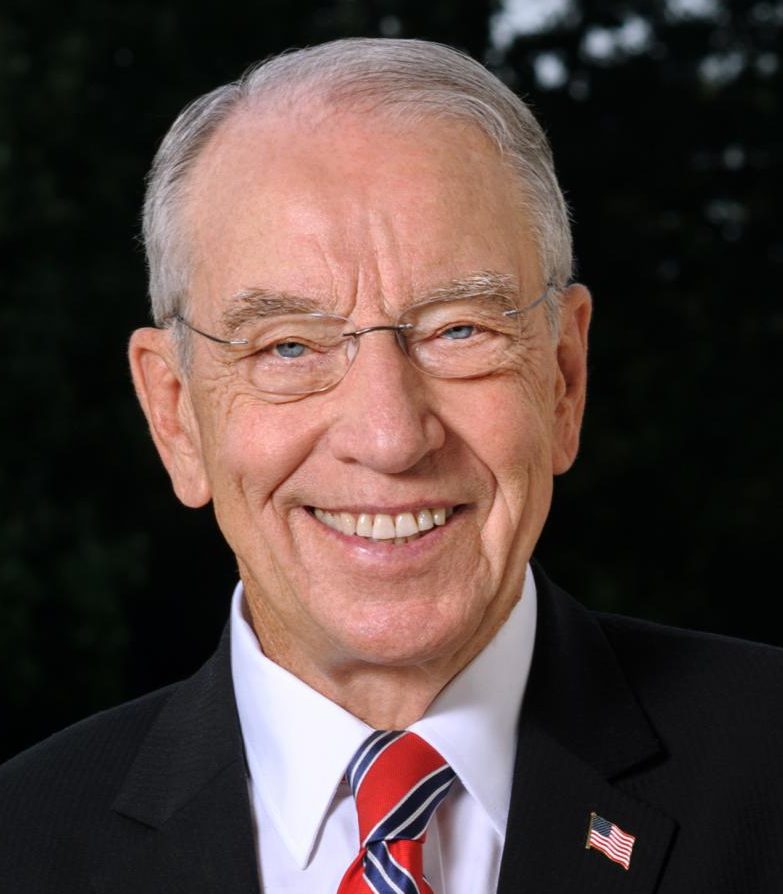Sen. Chuck Grassley (R-Iowa), Ranking Member of the Senate Judiciary Committee, on Tuesday praised the Senate’s passage of a bill he cosponsored to aid organizations that provide services for victims of crime. The bill unanimously passed the Senate this evening.
“Since its enactment, the Crime Victims Fund has delivered billions of dollars to states and communities to support victims at no cost to the taxpayer. Unfortunately the funding stream has decreased in recent years. The bipartisan VOCA Fix legislation, which I’m cosponsoring, restores stability to this important fund so that organizations dedicated to supporting crime victims in Iowa and elsewhere can continue to provide crisis counseling, shelter, and related services to crime survivors in our communities,” Grassley said.
The Victims of Crime Act (VOCA), which Grassley helped craft in the 1980s, established the Crime Victims Fund (CVF) to provide grant funding for state victim compensation and assistance programs. Grants are awarded to states, local governments, individuals, and other entities by the Justice Department’s Office for Victims of Crime. The CVF does not receive appropriated funding; instead, it receives most money through deposits from criminal fines. As a result, deposits fluctuate annually based on the outcomes of cases that the Justice Department prosecutes.
Deposits into the CVF are historically low, and the decrease is due in large part to greater use of deferred prosecutions and non-prosecution agreements. Monetary penalties associated with these prosecutions are currently deposited into the General Treasury, not the CVF. Grassley first raised concerns about the sustainability of the CVF last year, and recently called on Senate appropriators to set the cap on the CVF as high as possible to ensure more resources reach grantees and the victims they serve.
The bipartisan, bicameral VOCA Fix to Sustain the Crime Victims Fund Act will strengthen VOCA and preserve the CVF by amending how the CVF is funded. Critical changes in the bill include:
- Directing criminal settlements from Federal non-prosecution and deferred prosecution agreements, which are currently deposited into the General Treasury, into the CVF (known as the “deposits fix,” this change would be the most significant and could make an additional $4–$7 billion of non-taxpayer money available to the CVF over the next few years);
- Increasing the percentage that state compensation programs are reimbursed by the Federal government from 60 to 75 percent;
- Allowing states to apply for a no-cost extension for VOCA assistance grants;
- Giving states the ability to waive subgrantee match requirements for VOCA assistance grants; and
- Providing additional flexibility for state victim compensation programs to provide compensation for victims, even if they do not interact with law enforcement.
Along with Grassley, the VOCA Fix to Sustain the Crime Victims Fund Act is co-authored by Senate Judiciary Committee Chairman Dick Durbin (D-Ill.), and Sens. Lindsey Graham (R-S.C.), Tammy Baldwin (D-Wis.), John Cornyn (R-Texas), Dianne Feinstein (D-Calif.), Lisa Murkowski (R-Alaska), Amy Klobuchar (D-Minn.), and has a total of 63 Senate cosponsors.
The House companion legislation, which passed the House in March, was led by U.S. Representatives Jerrold Nadler (D-N.Y.-10), Brian Fitzpatrick (R-Penn.-01), Sheila Jackson Lee (D-Texas-18), Ann Wagner (R-Mo.-02), Mary Scanlon (D-Penn.-05), Cathy McMorris Rodgers (R-Wash.-05), Debbie Dingell (D-Mich.-12), and John Moolenaar (R-Mich.-04).
The legislation has been widely endorsed by the crime victims’ advocacy community and other stakeholders, including in this support letter signed by more than 1,717 national, regional, state, tribal, and local organizations and government agencies.
















